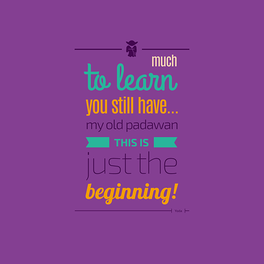 This Shabbat, in Vayigash, we read that Joseph reveals himself to his brothers. Joseph asks them to bring their father back to Egypt, and the family is finally reunited. Feeling all the feels, Joseph says to his brothers, "I am Joseph. Is my father still well?" (Genesis 45:3). His brothers are stunned and say nothing. Joseph persists, saying, "I am your brother Joseph..." (Genesis 45:4). In Vayigash, we witness the moment in which Joseph reveals himself to his brothers. We, the readers, know this man is Joseph. But for his brothers - the sons of Jacob, this is a moment of great surprise. Big family moment and lots of feelings abound. The concept of revelation is a tough one, and the connected emotions and process is heavily dependent on the relationship we have with those with whom we are interacting. Revelation occurs when the true identity of a person is shown to another. This can happen publicly or, as in the case of Joseph and his brothers, in private, and can range from liberating to frightening and everywhere in between. Some revelations are easy and jovial, while others are difficult and deeply personal. This week, I announced to my friends on Facebook that I have never seen any of the Star Wars films. The response, while expected, was overwhelming and hilarious. "I'm shocked." "How is that possible?" "Is this a safe space? Neither have I..." As an educator who loves to connect popular culture and works with adolescents, teenagers and emerging adults, many of my friends and colleagues expressed great disbelief in this revelation. On top of that, many contacted me privately and questioned my sanity for sharing such a dark secret. While humorous and entertaining, it got me thinking. I recognize that this revelation was small potatoes. While I won't be one of the millions of people standing in line and viewing this anticipated new chapter of the Star Wars series, I do appreciate its place and importance in our culture. And I also appreciate that many of my friends wrestle with revelations that are significantly more difficult than mine. There is so much judgement and hatred in our world right now, which often makes it hard for someone to feel completely safe and/or able to share themselves with others. Earlier this week, I was able to spend time at a local Islamic center with a group of teens and parents. During this experience, we shared great conversation, enjoyed a nosh and learned about the vast similarities between our communities and faiths. It was difficult to hear about the baseless hatred and stereotypes which are a norm in their daily lives. Our neighbors and friends do not feel safe to openly express their thoughts, beliefs and identities. We must not stand idly by. We need to speak up for our neighbors, regardless of what similarities we can find. In fact, we are commanded to love our neighbors as we love ourselves. (Leviticus 19) So we need to start doing that. Organizations such as Keshet, Planned Parenthood, HIAS and the Religious Action Center for Reform Judaism are a few examples of many who are fighting for change. As the great Yoda once said (or at least my friends have told me he did), "Fear is the path to the Dark side. Fear leads to anger, anger leads to hate, hate leads to suffering." Every single day, we choose which parts of ourselves to reveal to others through moments of interaction and connection. Let us hold onto the teaching of Hillel and not separate ourselves from the community, but rather to embrace and celebrate our role in it. Let's challenge ourselves to help others and ourselves by making our communities more welcoming, safe and inclusive places where we can feel comfortable celebrating all that we are. Shabbat Shalom!
2 Comments
Rabbi Robin Sparr
12/18/2015 09:06:27 pm
So proud to know you, Brett!
Reply
Brett
1/4/2016 12:25:06 pm
Thanks, Robin! I am lucky to have had you as one of the many role models who believed in and guided me when I was a [insert adjective of choice] adolescent and teenager!
Reply
Leave a Reply. |
Archives
July 2018
Categories
All
|
 RSS Feed
RSS Feed